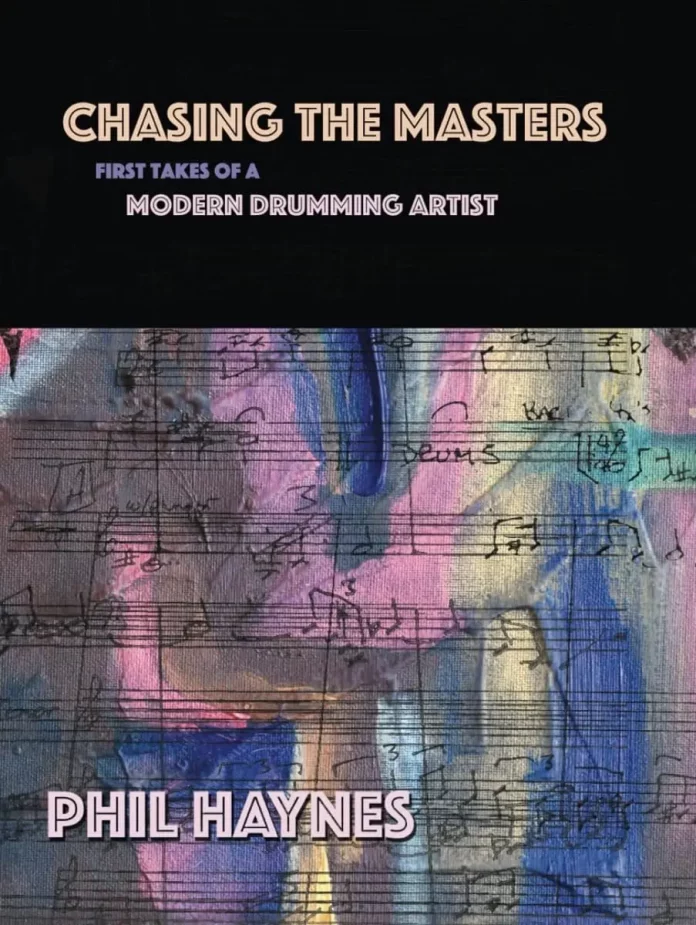My recent review of Haynes’ wonderful No Fast Food III with David Liebman and Drew Gress alluded both to the drummer’s declining health and the forthcoming publication of this book. Written at the encouragement of Liebman, Chasing The Masters is the gripping tale of Haynes’ lifelong love affair with music and his relentless quest for artistic growth. Somewhat unconventionally structured, it intersperses passages of memoir with fragments of poetry, sleeve notes, reviews, drawings and letters. Strategically placed QR codes point the reader towards tracks from a colossal nine-hour companion compilation, and Haynes includes a comprehensive discography and CV.
Anybody who has ever fallen deep into the rabbit hole of jazz will identify with Haynes’ obsessions. Emerging as a kind of musical everyman, he’d be a wide-eyed fan even without a five-decade career in which he has crossed paths with everybody from Lee Konitz to Anthony Braxton and Marilyn Crispell; witness the memorable passage in which he describes seeing Elvin Jones live for the first time: “I went. I sat. I watched. I LEARNED. It was a PHYSICAL and an emotional/gut revelation to witness his limbs work their magic – such gifted, eccentric mass/HEAVINESS to his strokes – all seemingly, impossibly, hanging just out of reach and behind-the-beat. Even with all my studies and partial transcriptions of his playing, I’d never conceived of ANYTHING quite like this”.
Early chapters take us through a largely happy childhood in 1960s Oregon. Haynes’ mother quickly discovered that young Phillip should never be dragged away from a concert until the very end. Largely self-taught, he would play in his basement with a homemade percussion kit to recordings of Prokofiev and Copland and later, when he’d graduated to a real kit, to Elvin Jones and Buddy Rich. It’s a practice regime he’d later pass on to his students, and part of a wider philosophy that values experiential learning over formal conservatory studies.
Haynes’ relationship with his prickly and inspirational mentor Paul Smoker is central, and later in the book he reveals ambitious plans to reissue Smoker’s recordings. The backstory to the Brooklyn-based Corner Store co-operative is no less fascinating, a sobering reminder of the precarious nature of life at the grass roots. Haynes doesn’t shy away from speaking about his struggles with depression, and his reflections on the jazz establishment and the pious pronouncements of the neo-cons of the 1980s are honest and on point. A radical traditionalist, Haynes explains “I see myself as very mainstream, but only mainstream in the way that you can look back in twenty years and say that Ornette Coleman was mainstream.” Over the years his playing has certainly become lighter, something he credits to Konitz, who once enquired “Say Phil, do you hear everything you play?”
The book is frequently hilarious and always insightful. Haynes’ career has brought him closer to the masters than most of us could ever dream. As physical limitations now force a recalibration, let’s hope he finally receives the dues that he so richly deserves.
Chasing The Masters: First Takes Of A Modern Drumming Artist, by Phil Haynes. Independently published by Corner Store Jazz Press; 310pp; hardcover; $35.00. ISBN 979-8860200883
















